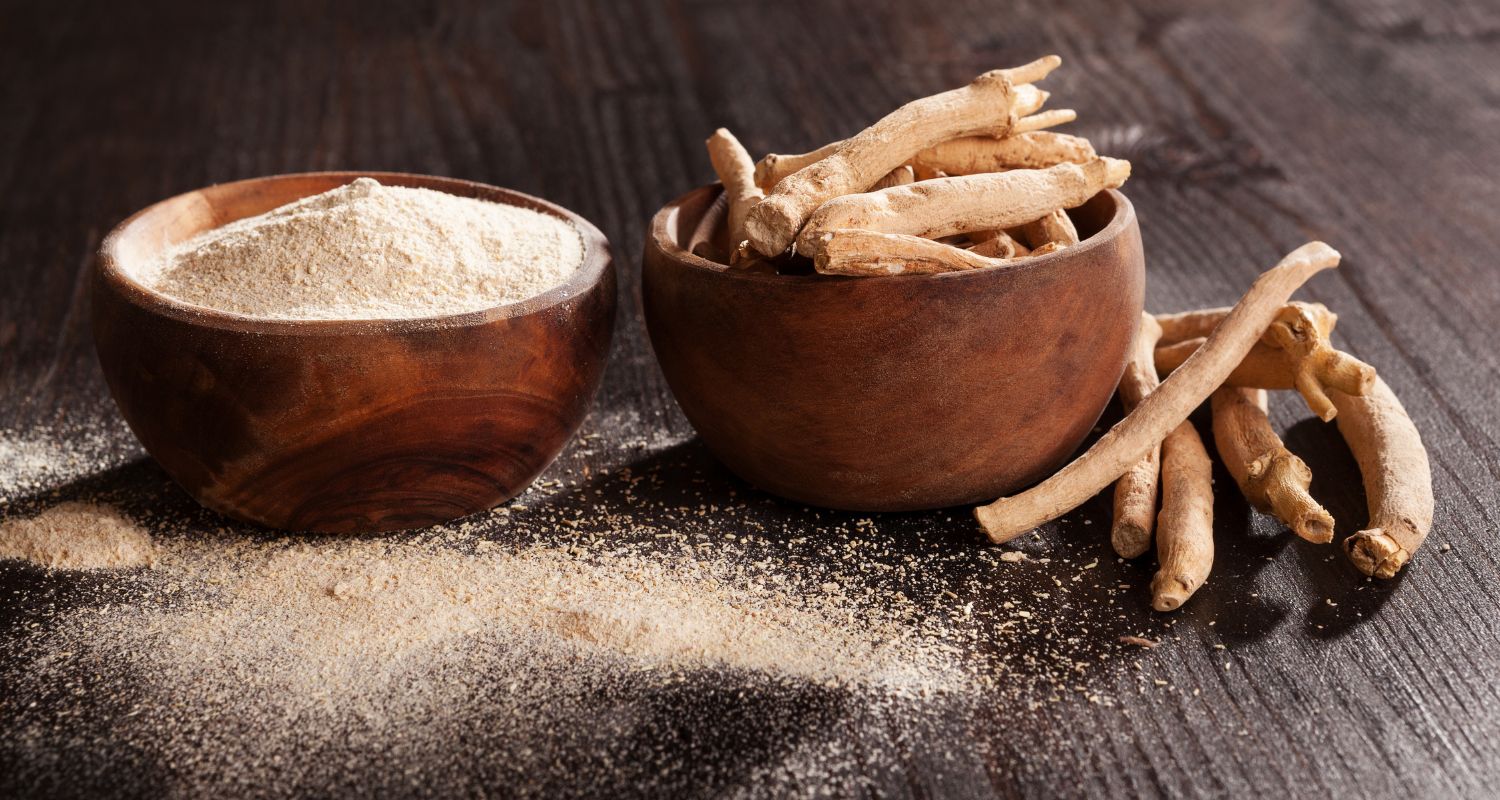Have you ever wondered if you can take fenugreek and Ashwagandha together? Well, you’re not alone! Many people are curious about the potential benefits of combining these two powerful herbal supplements.
In this article, we will delve into the details and discuss the benefits of fenugreek and Ashwagandha, and whether or not it is safe and beneficial to use them simultaneously. So, let’s get started!
First, let’s talk about fenugreek. This herb has been used for centuries in traditional medicine for its various health benefits. Fenugreek is known to promote healthy blood sugar levels, support digestion, and enhance milk production in breastfeeding mothers.
Additionally, it may also help boost testosterone levels and improve sexual health in both men and women. On the other hand, Ashwagandha is an adaptogenic herb that is well-known for its ability to reduce stress and anxiety. It also supports a healthy immune system, promotes better sleep, and enhances cognitive function.
Now, you might be wondering if it is safe to take fenugreek and Ashwagandha together. The good news is that there are no known interactions between these two herbal supplements, so it is generally safe to use them simultaneously.
In fact, combining fenugreek and Ashwagandha may provide a synergistic effect, meaning that their benefits may be enhanced when used together. However, as with any supplements, it is always a good idea to consult with your healthcare provider before adding them to your daily routine, especially if you have any underlying health conditions or are taking any medications.
In conclusion, both fenugreek and Ashwagandha offer numerous health benefits on their own, and it is generally safe to take them together. However, it is always best to consult with a healthcare professional to ensure that they are compatible with your specific needs and circumstances.
So, if you’re interested in exploring the potential benefits of these herbal supplements, keep reading our article to learn more about their individual benefits and the best ways to incorporate them into your daily routine.

What is Fenugreek?
Origin and history
Fenugreek, also known as Trigonella foenum-graecum, is a herb that belongs to the family Fabaceae. It is native to the Mediterranean region, specifically Greece and Egypt, and has been cultivated since ancient times. Fenugreek seeds have long been used in cooking, traditional medicine, and as a spice in various cuisines.
Botanical description
Fenugreek is an annual herb that grows up to around 2 feet tall. It has small, green, trifoliate leaves and produces clusters of white flowers that eventually develop into long, slender seed pods. The seeds themselves are small, yellow-brown in color, and have a distinct aroma.
Traditional uses
Fenugreek has a rich history in traditional medicine. It has been used to treat a wide range of ailments, including digestive issues, diabetes, menstrual cramps, and skin conditions. It is also believed to have aphrodisiac properties, enhance lactation in nursing mothers, and promote weight loss. The seeds can be brewed into a tea, ground into a powder, or taken in supplement form.

What is Ashwagandha?
Origin and history
Ashwagandha, scientifically known as Withania somnifera, is a medicinal herb that is native to India, Sri Lanka, and Pakistan. It has been used in Ayurvedic medicine for over 3,000 years and is considered one of the most important herbs in this system of traditional medicine.
Botanical description
Ashwagandha is a small shrub that grows up to 3 feet tall. It has oval-shaped leaves that are green on top and pale green underneath. The plant produces small, orange-red berries that contain yellow seeds. The root of the ashwagandha plant is the most commonly used part, known for its medicinal properties.
Traditional uses
Ashwagandha is known as a rejuvenating and adaptogenic herb in Ayurvedic medicine. It is believed to promote vitality, strengthen the immune system, and balance the body’s energy levels. Ashwagandha has been traditionally used to reduce stress and anxiety, improve cognitive function and memory, enhance sexual health, and increase energy levels. It can be consumed as a powder, tincture, or in capsule form.
Health Benefits of Fenugreek
Regulating blood sugar levels
Fenugreek has been shown to help regulate blood sugar levels, making it beneficial for individuals with diabetes or insulin resistance. Research suggests that fenugreek may improve insulin sensitivity, reduce fasting blood sugar levels, and lower post-meal glucose levels.
Improving digestion
Fenugreek has been used for centuries to aid digestion and alleviate indigestion. It stimulates the production of digestive enzymes and bile, which helps break down food and improves nutrient absorption. Fenugreek can also soothe gastrointestinal inflammations and promote regular bowel movements.
Increasing breast milk production
Fenugreek is commonly used by nursing mothers to increase breast milk production. It contains compounds that stimulate milk production and is believed to have a galactagogue effect. However, it’s important to note that individual results may vary, and it’s always best to consult with a healthcare professional before using fenugreek for this purpose.
Reducing inflammation
Fenugreek has anti-inflammatory properties, which can help reduce inflammation in the body. Chronic inflammation has been linked to various health conditions, including heart disease, diabetes, and arthritis. Studies have shown that fenugreek extracts can inhibit the release of pro-inflammatory substances and alleviate inflammation-related symptoms.

Health Benefits of Ashwagandha
Reducing stress and anxiety
Ashwagandha is well-known for its ability to reduce stress and anxiety levels. It has been shown to lower cortisol, a hormone associated with stress, and promote a sense of calmness and relaxation. Ashwagandha may also improve sleep quality and help individuals manage stress-related disorders such as insomnia and depression.
Improving cognitive function
Ashwagandha has been found to enhance cognitive function and memory. It has been shown to support the growth of nerve cells in the brain and protect against oxidative stress, which can damage brain cells. Ashwagandha may also improve attention, concentration, and overall cognitive performance.
Enhancing immune system
Ashwagandha has immunomodulatory properties, meaning it can help balance and strengthen the immune system. It stimulates the production of immune cells, enhances antibody responses, and increases the activity of natural killer cells. Regular consumption of ashwagandha may help improve overall immune function and protect against infections.
Boosting energy levels
Ashwagandha is often used as an adaptogen, a substance that helps the body adapt to physical and mental stressors. It can increase energy levels and reduce fatigue by supporting adrenal gland function. Ashwagandha has been reported to improve physical endurance, reduce fatigue-related impairments, and enhance overall vitality.
Can Fenugreek and Ashwagandha be Taken Together?
Interaction and compatibility
Both fenugreek and ashwagandha are generally safe to consume, and there are no known interaction issues when taking these herbs together. However, it’s always a good idea to consult with a healthcare professional before starting any new herbal supplements, especially if you have any underlying health conditions or are taking medications.
Combining dosage and timing
When taking fenugreek and ashwagandha together, it’s important to follow the recommended dosages for each herb. Fenugreek is usually taken in doses ranging from 500-1500mg per day, while ashwagandha is typically taken in doses of 300-600mg per day. These dosages can vary based on individual needs, so it’s best to start with the lowest effective dose and adjust accordingly.
Timing of consumption can also play a role in maximizing the benefits of fenugreek and ashwagandha. Some individuals prefer to take fenugreek with meals to aid digestion, while others may take ashwagandha in the evening to promote relaxation and better sleep. Experimenting with different timings can help determine what works best for you.
Potential synergistic effects
While there is limited research on the specific synergistic effects of fenugreek and ashwagandha, it’s possible that their combined use may enhance certain health benefits. Both herbs have anti-inflammatory properties, support hormone balance, and have antioxidant effects. Further research is needed to fully understand the potential synergistic effects of taking fenugreek and ashwagandha together.

How to Incorporate Fenugreek and Ashwagandha into Daily Routine?
Forms and preparations
Fenugreek and ashwagandha are available in various forms, including capsules, powders, and tinctures. Capsules offer a convenient and standardized way to consume the herbs, while powders can be easily added to smoothies, teas, or other beverages. Tinctures are alcohol-based extracts that can be taken directly or diluted in water.
Recommended dosages
The recommended dosages for fenugreek and ashwagandha may vary based on individual needs and health conditions. As mentioned earlier, fenugreek is generally taken in doses ranging from 500-1500mg per day, while ashwagandha is typically taken in doses of 300-600mg per day. It’s important to start with the lowest effective dose and gradually increase if needed.
Possible side effects and precautions
Although fenugreek and ashwagandha are generally safe for most individuals, they may cause certain side effects in some cases. Fenugreek can cause gastrointestinal discomfort, such as gas and bloating, in high doses. Ashwagandha may cause drowsiness or upset stomach in some individuals, especially when taken in large amounts. It’s advisable to start with smaller doses and monitor your body’s response.
Pregnant women, breastfeeding mothers, and individuals with underlying health conditions or taking medications should consult with a healthcare professional before using fenugreek or ashwagandha.
User Experiences and Testimonials
Individuals’ feedback on simultaneous use
Many individuals have reported positive experiences when taking fenugreek and ashwagandha together. Some users have mentioned improved energy levels, reduced stress, better digestion, and enhanced cognitive function. However, individual experiences may vary, and it’s important to listen to your body and consult with a healthcare professional for personalized advice.
Effectiveness and overall satisfaction
Overall, fenugreek and ashwagandha have garnered positive reviews for their health benefits when taken individually or together. Users have reported improvements in various aspects of their well-being, including blood sugar regulation, digestion, breast milk production, stress management, cognitive function, immune support, and energy levels. It’s important to note that these testimonials are subjective and should not replace professional medical advice.

Conclusion
Both fenugreek and ashwagandha offer numerous health benefits and have been used for centuries in traditional medicine. They can be taken together, and their potential synergistic effects may enhance certain health benefits.
When incorporating fenugreek and ashwagandha into your daily routine, it’s important to follow recommended dosages, consider timing of consumption, and be aware of possible side effects.
As always, consult with a healthcare professional before starting any new supplements, especially if you have underlying health conditions or are taking medications. Listen to your body and personalize your approach to optimize the benefits of fenugreek and ashwagandha for your overall well-being.




